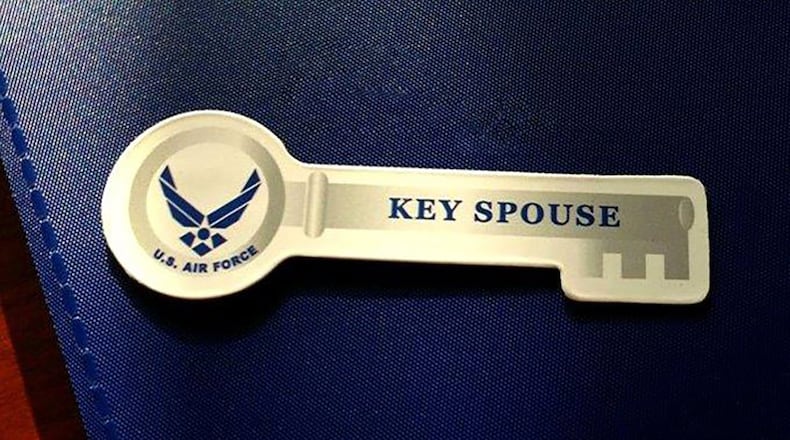“The program is mainly for the families, but it also puts the service member at ease knowing their spouse has someone to reach out to while they are away,” said Stephanie Cummiford, a key spouse since 2011.
Key spouses believe that well-informed families are strong families, and that strength contributes to the success of the unit’s mission.
Complications with finding child care, snow removal or a vehicle that won’t start are just a few of the unexpected issues the program can help with.
“Doing things for families and connecting them to invaluable resources is an important contribution from the program,” said Katherine Ballein, a key spouse in her husband’s unit.
“Putting together gift baskets and baby baskets,” Cummiford said, “is one of my happiest moments as a key spouse.”
The program was developed out of concern for Air Force families during deployment. In March 2009, it became Air Force wide and is now available to everyone, including civilians with deployed spouses.
A key spouse is a volunteer, usually the spouse of one of the unit members, who provides a link of communication between the chain of command and fellow spouses and their families. It is a team effort usually consisting of the commander, first sergeant, senior NCO and a representative from the Airman and Family Readiness Center.
Providing up-to-date information and referral services is the primary goal of the program. The information specific to the unit is the most important, so no one is left in the dark.
“Facilitating events where service members get together outside of work” is a responsibility she enjoys said Ballein.
Both Cummiford and Ballein have seen strong ties made within the unit families who participate, whether those families live on or off base.
Interested in becoming a key spouse? This is an appointed position by the unit commander to act as an official unit readiness representative. A successful key spouse has a high degree of integrity, is capable of offering a caring and empowering environment, and is a great communicator and dependable.
“Make sure you can commit to the time necessary to be a successful key spouse,” Ballein said.
“Go for it,” said Cummiford, “but talk with the first sergeant before doing anything.”
There is also a commitment to complete the required training. Online training is six to eight hours long, as well as time spent with other key spouses. In addition to the essential training, the Airman and Family Readiness Center offers quarterly continuing education opportunities that are highly recommended.
“The program has had a bad rep in the past, and it is important that people understand this is not a gossip club and we are here to help the units and their spouses, not hurt,” said Cummiford. “A lot of good people have been changing the face of the program, and we want to continue this.”
For more information within a specific unit, contact the unit’s first sergeant. For more information about becoming a key spouse, contact Jacqueline Shazor at 937-904-0216 or jacqueline.shazor@us.af.mil.
About the Author
